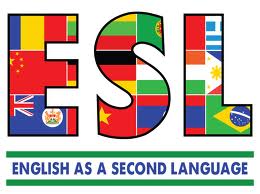 With a broad range of options to choose from, English as a Second Language (ESL) courses vary in length and levels of intensity. Many are tailored to meet academic goals while other ESL courses focus on professional development. All build written and oral communication competencies while gaining valuable knowledge and skills required for success in the workplace.
With a broad range of options to choose from, English as a Second Language (ESL) courses vary in length and levels of intensity. Many are tailored to meet academic goals while other ESL courses focus on professional development. All build written and oral communication competencies while gaining valuable knowledge and skills required for success in the workplace.
Education
The mission and priorities of most ESL programs are to provide an intensive English program that helps students meet collegiate, personal, and work-related goals. In addition, the programs encourage learning about American culture, and help students meet English ability requirements for undergraduate and graduate degree programs. Courses are designed for different levels, including:
- Basic ESL
BESL studies assist students foster and augment their comprehensive English language skills for personal improvement, employment, or university coursework preparation. This level usually offers a course in essential conversational techniques, as well as in writing and reading comprehension. Classes focus on individuals with limited knowledge of the English language by helping them achieve competence in their speaking and writing skills. This, in turn, greatly enhances job and career potential.
- Intensive ESL
Certified Intensive ESL courses quickly strengthen communication skills to help expand academic and professional opportunities. Courses focus on achieving rapid fluency as well as learning grammar and vocabulary useful in everyday life. By taking courses in business English, such as communication in the workplace and interview techniques, integrating newly established skills makes immersion practical and attainable.
- Degree-Seeking ESL
Degree-Seeking ESL courses include classes in note taking, reading, writing, grammar, speaking, and pronunciation to prepare students for scholarly content. Many integrated courses allow advanced level students to take a college class concurrently with the ESL program. The ESL instructors and the course-specific educators mutually provide a supportive educational climate to foster student success.
Employment
- English for Job Seekers
Many non-native English speakers enroll in ESL classwork to advance their vocations or expand career possibilities, providing hands-on experience with the process. As an illustration, completing a resume allows them to build confidence in beginning the job search. Job searching tools include understanding abbreviations and unfamiliar vocabulary.
- General Communication ESL
Courses focusing on general communication in ESL programs encourage students to improve their ability to communicate orally in informal, academic, social, and professional situations. Focus centers around improving fluency in speaking and increasing listening comprehension of conversational interactions and extended discourse. In addition, they expand upon vocabulary and pronunciation skills. These courses help learners utilize strategies to extend their language learning potential outside of the classroom.
- Workplace ESL
Workplace ESL courses are dedicated to helping employees achieve educational goals regardless of their industry. Students with greater language skills enhance business growth and progress by breaking down communication barriers. These courses may include specific linguistic and cultural competencies.
Regardless of the reasons for taking ESL courses, the benefits of learning to English with confidence include more than just boosting competency in English language skills. Instructors help reinforce study skills, provide an awareness of the American culture, and are trained to meet the unique needs of international students. Conversation practice, college credit, and career development provide real-world immersion to amplify speaking, reading, listening, and writing skills to succeed in an academic or professional setting.
 Entrepreneur Resources Your source for small business information
Entrepreneur Resources Your source for small business information




